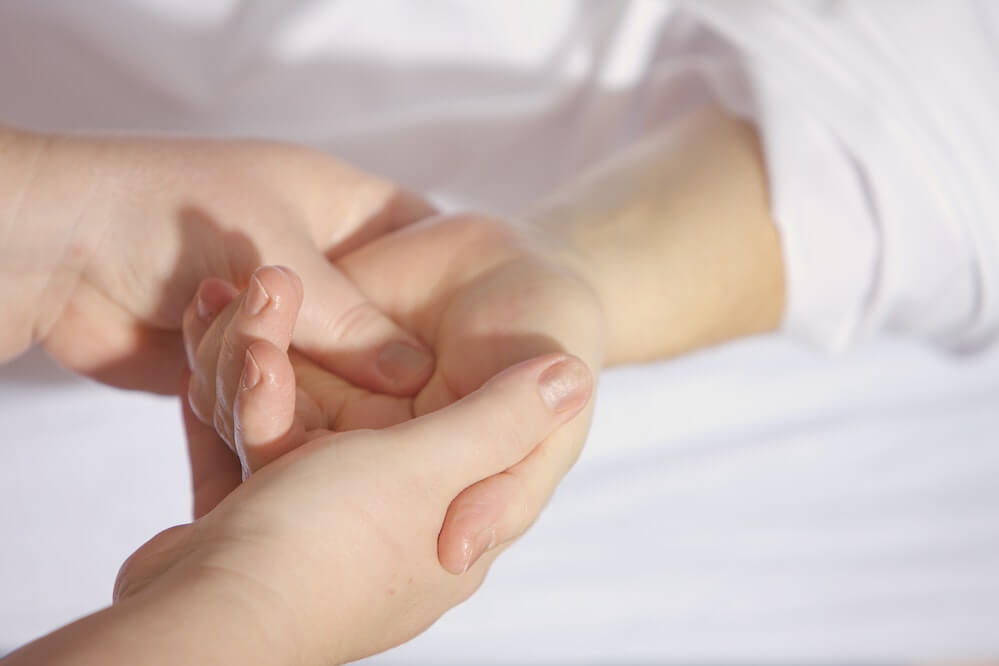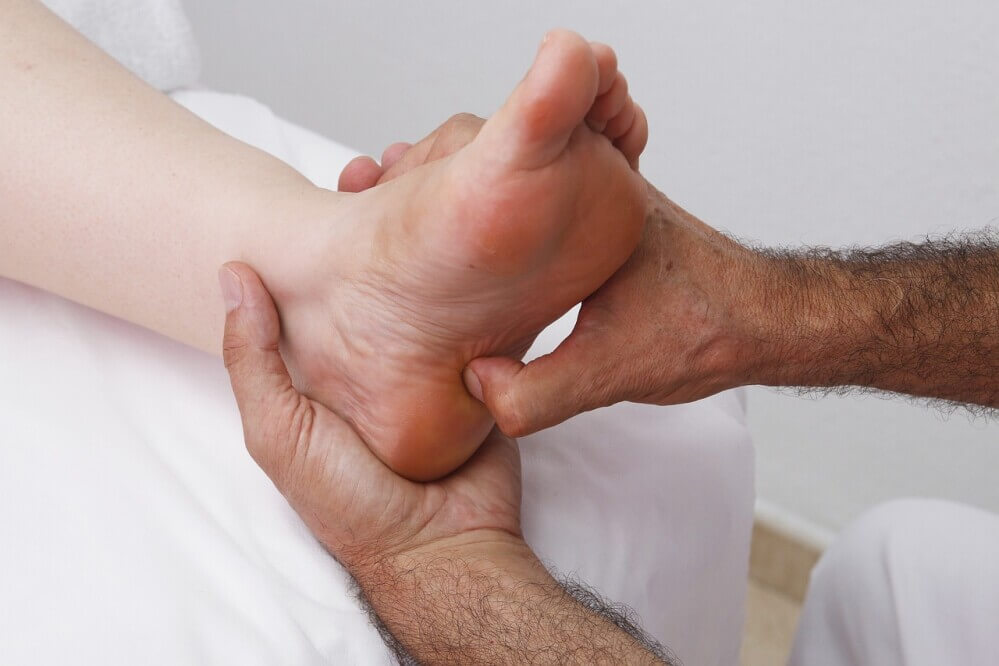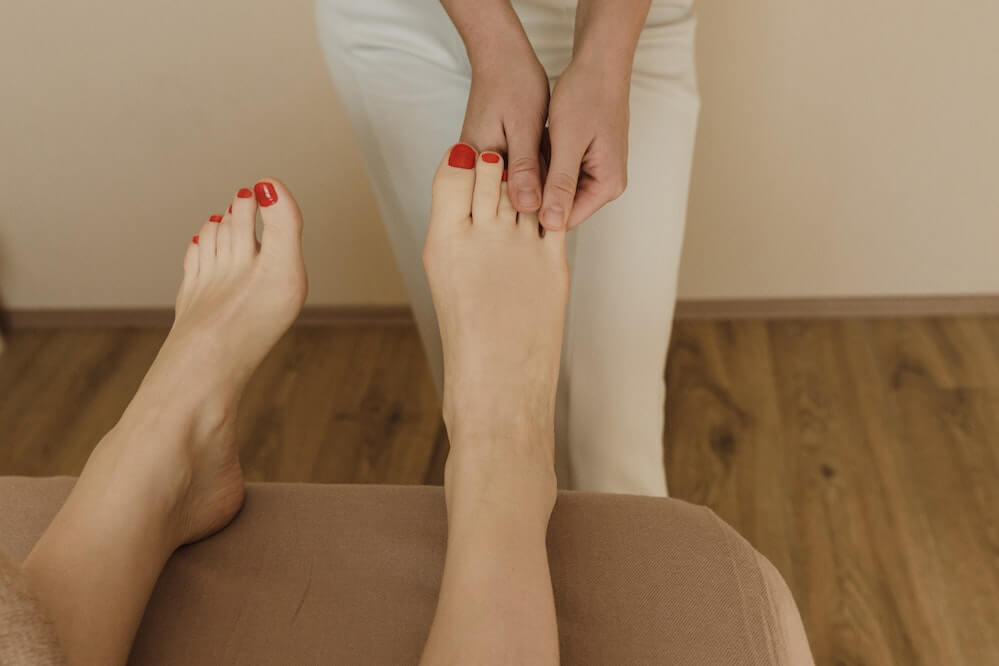As an ancient practice, reflexology has withstood the test of time, and it’s still gaining popularity for its many health benefits. All in all, reflexology’s main benefit is restoring balance and improving overall well-being. Another key benefit is helping reduce stress and anxiety and create a calm and relaxing state of body and mind.
Read on to find out more about what reflexology is, how it works, and what its benefits are.
What Is Reflexology and How Does It Work?
Reflexology is a non-invasive type of massage therapy that involves applying pressure on certain body parts (hands, feet, ears, lower legs, and face) to stimulate different organs, organ systems, and body areas. This treatment is based on the principle that there are reflex points on body parts like feet and hands that mirror other body structures. Thus, they can restore the body’s healing abilities, improve blood and energy flow and relieve pain.
The exact way reflexology works isn’t yet cleared; however, many theories offer explanations:
- Nerve impulse theory: It suggests that stimulating specific reflex points can enhance the nervous system’s connection to the body parts corresponding with said reflex points and activate the release of endorphins.
- Energy-related theories: This theory proposes that reflexology can help open blockages in the electromagnetic fields and restore communication between body parts.
Benefits of Reflexology
Although more research needs to be done, patient reports show that reflexology can help treat and manage many ailments, including chronic pain, arthritis, anxiety, symptoms of multiple sclerosis (fatigue and uncomfortable skin sensations), sinus issues, and more.
Here we’re going to mention ten health benefits you can experience from reflexology:
Relaxation
During a reflexology session, the neural pathways will open and increase neuron activity which helps to put the body in a relaxed state. Because it helps calm the body and mind and get it back to the normal circadian rhythm, reflexology can be used as a treatment for sleep disorders like insomnia.
Nerve function improvement
A well-known benefit of reflexology is the acceleration of the functioning of the central nervous system, as it opens and clears neural pathways, improving functionality and flexibility in many body areas. Because neural pathways are crucial for maintaining the health of the body, it’s important to keep them active.
Brain power improvement
Reflexology helps the brain process information faster and more effectively by stimulating nerves and opening neural pathways, resulting in faster physical and cognitive reactions and improved memory.
Increased blood circulation
Reflexology also helps increase blood circulation in your body, thus ensuring that the blood cycle is more effective. As oxygen is delivered to each body part by blood circulation, increased blood circulation also ensures that more oxygen reaches the vital organs, this way optimizing their functioning.
Getting rid of toxins
By stimulating blood flow in the body, reflexology makes the flushing out of toxins more efficient through the kidney and bladder. By eliminating the body’s toxins, your body will be able to protect itself from health conditions resulting from a compromised urinary system caused by bladder or kidney infections.
Boosting metabolism and energy levels
Because reflexology increases blood circulation and helps more oxygen reach vital organs, it results in higher functionality of many organs, which boosts metabolism and creates more energy in your body.
Reducing headaches
Headaches and migraines can be very uncomfortable and make daily chores more difficult. Reflexology can help relieve tension in the muscles that cause headaches, as well as reduce stress and anxiety, which can manifest physical symptoms in the form of headaches and migraines.
Helping menstruation and pregnancy
Unfortunately, menstruation cramps, back pain, and general tiredness can be severe for many, and for those who don’t want to rely on painkillers, reflexology can help with relieving pain and regulating hormones.
Reflexology can also be helpful during the end of pregnancy, as it helps with labor length and the need for analgesics during labor. It can also reduce the chances of postpartum depression and shorten the recovery time, allowing patients to return to their metabolic activity more quickly.
Easing some of the effects of cancer
Cancer patients report that reflexology helps with easing the side effects of therapy. It helps reduce anxiety, improve sleep, and diminish vomiting and indigestion issues. While there’s no scientific evidence that reflexology cures cancer, by helping clear neural channels and improving circulation, reflexology can help stimulate antioxidant activity and slow the spread of cancer.
Faster recovery
Because reflexology helps increase blood circulation and nerve activity and boost metabolism, cells can go through the life cycle faster, thus healing wounds more quickly. Reflexology also helps with pain reduction, this way making it easier for people to recover and get back to their routine.
When To Avoid Reflexology
Although reflexology is a safe practice, there are instances where it would be best to avoid reflexology, such as:
- Localized inflammation (swelling of the hands or feet)
- Pregnancy (the first six weeks)
- DVT (deep vein thrombosis)
- Large varicose veins
- Localized injury (unhealed wounds, gout, or fractures)
- Adverse reaction from a previous session
- Thyroid problems
- Epilepsy
- Illness (infections, fever, diarrhea, or vomiting)
- Skin conditions (psoriasis, chicken pox, or eczema)
Therefore, consult with your primary provider about health concerns before starting a reflexology treatment.
You can experience mild, short-term side effects after a reflexology session, including:
- Mood swings
- Lightheadedness
- Tender feet
- Fatigue
- Foot sensitivity
- Change in body temperature
- Headaches
- Increased urination
The Bottom Line
Alternative treatments, including reflexology, are getting more popular as the holistic approach aims to treat the body as a whole to find the underlying problem. Therefore, they can be highly effective when combining them with standardized treatments. As a complementary treatment, reflexology can be helpful for many conditions, including stress, anxiety, hormone imbalance, cold or bacterial infections, and more.
Reflexology can be a transformative experience and improve the quality of life, which is why you should consider including it in your wellness plan. If you’re considering trying reflexology, feel free to check out our Holistic Wellness Center based in Columbus, Ohio, and book an appointment to get a reflexology treatment tailored to your needs.



